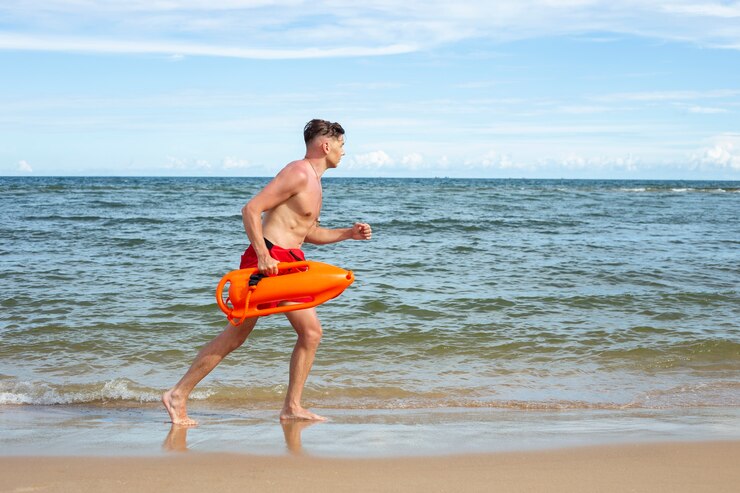Introduction
Lifeguard Training isn’t just about saving lives; it’s also about maintaining peak physical and mental condition. In this article, we delve into the importance of lifeguard training, how it helps individuals stay in shape, and what components are essential for effective training.
Importance of Lifeguard Training
Lifeguard training goes beyond just learning rescue techniques. It equips individuals with skills crucial for safeguarding lives in aquatic environments. Beyond that, it also contributes significantly to personal fitness and well-being.
Benefits of Lifeguard Training
Lifeguard training offers a myriad of benefits. Not only does it provide the necessary skills to save lives, but it also enhances physical fitness and endurance. Moreover, it instills psychological preparedness, crucial for handling stressful situations effectively.
Components of Lifeguard Training
To become an effective lifeguard, one must undergo comprehensive training. This includes mastering swimming proficiency, learning first aid and CPR techniques, and understanding various rescue methods. Each component is vital for ensuring the safety of individuals in aquatic settings.
Staying Fit as a Lifeguard
Physical fitness is paramount for lifeguards as it directly impacts their ability to respond swiftly and effectively during emergencies. Tailored workout routines focusing on strength, endurance, and agility are essential. Additionally, maintaining a balanced diet rich in nutrients further optimizes performance.
Mental Health and Well-being
While physical fitness is crucial, mental health is equally important for lifeguards. The nature of their job can be mentally taxing, requiring effective stress management techniques and coping strategies. Prioritizing mental well-being ensures lifeguards can perform optimally in high-pressure situations.
Conclusion
Lifeguard Training not only prepares individuals to save lives but also plays a significant role in keeping them in shape both physically and mentally. By mastering essential skills and adopting healthy lifestyle habits, lifeguards can fulfill their responsibilities effectively while maintaining their own well-being.
FAQs
- What certifications are required for lifeguard training?
- Lifeguards typically need certifications in CPR, first aid, and lifeguarding from recognized organizations such as the American Red Cross or the YMCA.
- How often should lifeguards undergo training?
- Lifeguards should undergo regular training sessions to stay updated with the latest techniques and protocols. Typically, refresher courses are recommended annually.
- Can anyone become a lifeguard regardless of age?
- While age requirements may vary depending on the organization and location, individuals must meet certain physical and skill-based criteria to become lifeguards.
- Are there specialized lifeguard training programs for different environments?
- Yes, there are specialized lifeguard training programs tailored for specific environments such as pools, beaches, and water parks. These programs focus on the unique challenges and skills required for each setting.
- How can lifeguards stay updated with the latest techniques and protocols?
- Lifeguards can stay updated through regular training sessions, workshops, and seminars offered by accredited organizations. Additionally, staying informed about industry publications and guidelines is crucial for maintaining proficiency.


